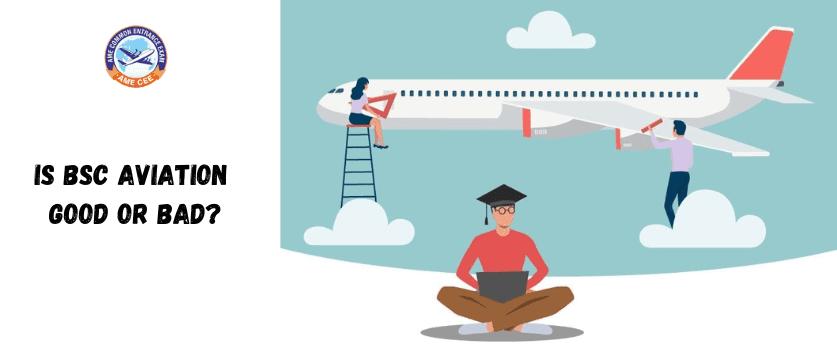Whether a Bachelor of Science in Aviation (BSc Aviation) is considered good or bad in India depends on various factors, including individual career goals, the quality of the program, industry demand, and personal preferences. Let’s delve into the details:
1. Pros of BSc Aviation in India:
Industry Relevance:
The aviation industry in India is growing rapidly, with increasing demand for skilled professionals in various sectors such as airline operations, airport management, aviation safety, and aircraft maintenance. A BSc Aviation program can provide students with the knowledge and skills needed to pursue careers in these areas.
Specialized Curriculum:
BSc Aviation programs typically offer a specialized curriculum tailored to the needs of the aviation industry. Courses may cover subjects such as aviation management, air navigation, airport operations, aviation safety, aircraft systems, and regulatory requirements.
Hands-On Training:
Many BSc Aviation programs include practical training components such as flight simulation, airport visits, internships, and on-the-job training with industry partners. This hands-on experience can enhance students’ understanding of aviation operations and help them develop practical skills relevant to their chosen career paths.
Career Opportunities:
Graduates of BSc Aviation programs may pursue a wide range of career opportunities in the aviation industry, including roles as pilots, aircraft maintenance engineers, airport managers, aviation safety inspectors, air traffic controllers, and aviation administrators.
2. Cons of BSc Aviation in India:
Limited Scope:
While the aviation industry in India is growing, it may still have limitations compared to more established industries. Job opportunities in certain sectors of the aviation industry may be limited, and competition for positions can be fierce.
Regulatory Challenges:
The aviation industry is heavily regulated, and navigating regulatory requirements can be challenging for both individuals and organizations. Graduates of BSc Aviation programs may need to obtain various licenses, certifications, and clearances from regulatory authorities such as the Directorate General of Civil Aviation (DGCA) in India.
Costs and Investment:
Pursuing a BSc Aviation degree can be costly, especially if it involves expenses such as flight training, simulator hours, and specialized equipment. Students should carefully consider the financial investment required and weigh it against potential career opportunities and earning potential in the aviation industry.
Career Uncertainty:
Like any industry, the aviation sector is subject to economic fluctuations, technological advancements, and regulatory changes that can impact career prospects. Individuals considering a career in aviation should be prepared for potential uncertainties and challenges in the job market.
In conclusion, whether a BSc Aviation degree is good or bad in India depends on various factors, including individual interests, career goals, the quality of the program, industry demand, and personal circumstances. Prospective students should carefully research their options, consider their long-term career objectives, and assess the reputation and accreditation of BSc Aviation programs before making a decision. Additionally, gaining practical experience through internships, networking, and industry involvement can enhance career prospects in the competitive field of aviation.


